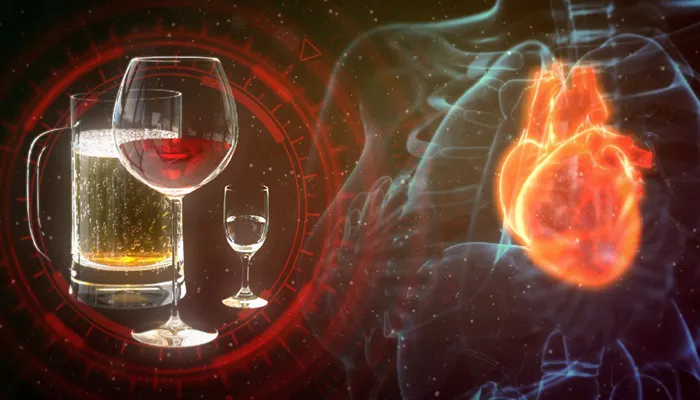Recent research highlights a concerning connection between heavy drinking and heart arrhythmias, particularly among young adults. A study published in the European Heart Journal indicates that binge drinking can lead to significant heart rhythm disturbances, even in otherwise healthy individuals.
The MunichBREW Studies
The findings stem from the MunichBREW II Study, which builds on earlier research conducted at LMU University Hospital.
This new study aimed to provide a more comprehensive understanding of how excessive alcohol intake affects the heart.
Researchers used mobile equipment to monitor young adults at social events where high blood alcohol concentrations (BAC) were expected. Professor Stefan Brunner noted that many participants likely reached BAC levels of at least 1.2 grams per kilogram.
This investigation is now recognized as the largest study to date examining the immediate effects of acute alcohol consumption on heart rhythms over several days.
Study Overview
The study involved over 200 young adults who experienced peak BAC levels of up to 2.5 grams per kilogram, indicating significant alcohol consumption. Participants wore ECG devices that tracked their heart rhythms for 48 hours. The monitoring was divided into four phases: baseline (hour 0), drinking period (hours 1-5), recovery (hours 6-19), and two control periods occurring 24 hours after drinking and recovery.
During the drinking phase, researchers measured BAC levels and analyzed ECG data for heart rate, variability, and arrhythmias. Despite the festive atmosphere, the ECG results showed that many participants experienced irregular heart rhythms, especially during the recovery phase.
“Clinically relevant arrhythmias were found in over five percent of healthy participants,” said Moritz Sinner, noting that these issues primarily arose during recovery. Increased alcohol consumption led to a rapid heart rate exceeding 100 beats per minute, indicating that alcohol can disrupt the heart’s regulatory processes.
Implications for Health
Brunner emphasized that this study adds to the growing evidence of the negative health impacts associated with excessive alcohol consumption. As such, individuals may want to reconsider their drinking habits, especially during social gatherings.
While there is ongoing debate about what constitutes a safe level of alcohol consumption, most studies agree that binge drinking significantly increases the risk of heart disease. The long-term effects of alcohol-related arrhythmias on heart health remain an area for further research.
Related topics:
- Binge Drinking Linked to Cardiac Arrhythmias in Healthy Youth
- Global Arrhythmia Market: Size, Share, And Growth Forecast for 2024-2033
- What Is The Clinical Significance of an Arrhythmia?


